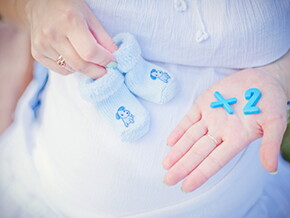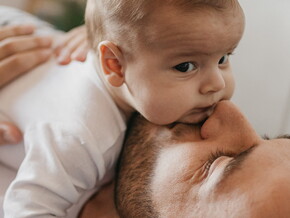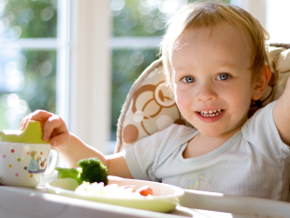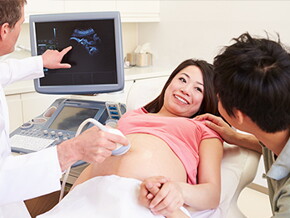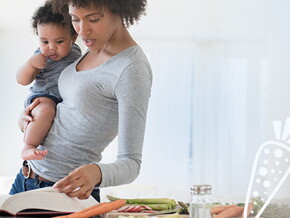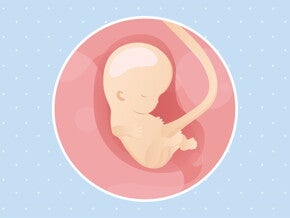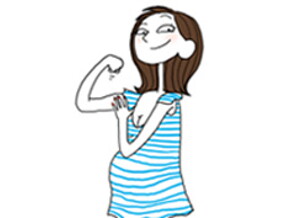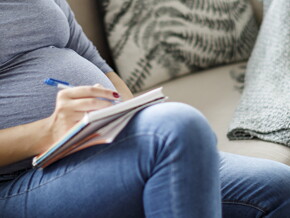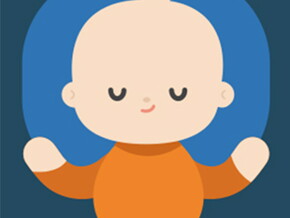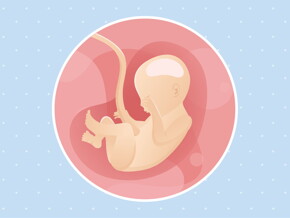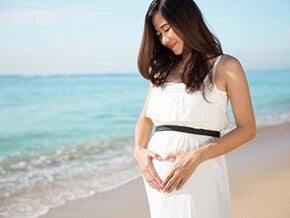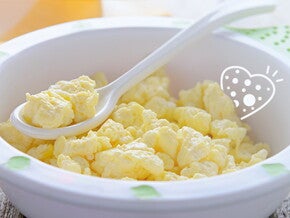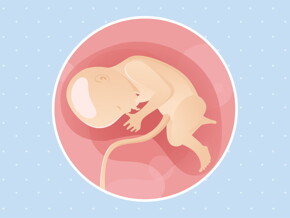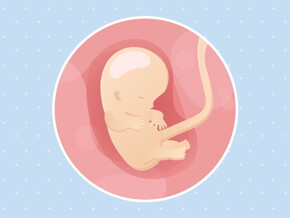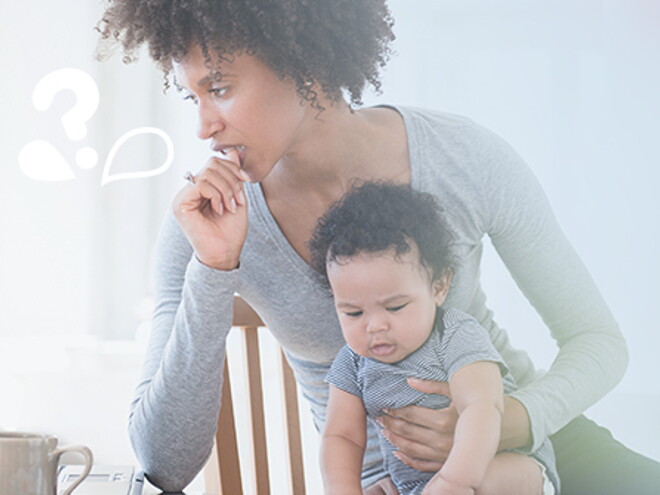
Everything you need to know about breastfeeding
The truth about breastfeeding
1. I’m breastfeeding so I don’t need to watch my weight.
Yes, double helpings for me!
No, breastfeeding doesn’t mean unlimited eating.
Wrong! You burn an impressive 400 to 500 calories per day making breast milk. Some of these calories will come from your body using fat you put on during pregnancy so you might not need to consume that number of extra calories in food. If you eat more than you need for making breast milk it is possible to gain weight while breastfeeding.
Right! You burn an impressive 400 to 500 calories per day making breast milk. Some of these calories will come from your body using fat you put on during pregnancy so you might not need to consume that number of extra calories in food. If you eat more than you need for making breast milk it is possible to gain weight while breastfeeding.
2. I still need to eat as much protein as I did when I was pregnant.
Yes, breastfeeding is demanding work!
No, I’m not growing a baby anymore.
Right! Your body needs the same amount of protein while you’re breastfeeding as it did when you were pregnant. This means around 25g extra protein per day compared with your needs before you conceived. An egg (6g of protein) and 2oz (60g) of chicken breast, for example, would give you the extra protein you need.
Wrong! Your body needs the same amount of protein while you’re breastfeeding as it did when you were pregnant. This means around 25g extra protein per day compared with your needs before you conceived. An egg (6g of protein) and 2oz (60g) of chicken breast, for example, would give you the extra protein you need.
3. Foods like broccoli or beans make me a little gassy, so that means my baby will get gassy too.
Yes, I should avoid eating these foods to prevent my baby from being gassy.
No, it’s just me who will get gassy.
Wrong! The gas-making compounds in broccoli and beans have not been consistently found in breast milk. It is thought that they stay in your digestive system without being absorbed into your body or passing into your milk. If your baby is gassy, it may be because his digestive system is still developing.
Correct! The gas-making compounds in broccoli and beans have not been consistently found in breast milk. It is thought that they stay in your digestive system without being absorbed into your body or passing into your milk. If your baby is gassy, it may be because his digestive system is still developing.
4. My baby tastes flavors in my breast milk, so he may prefer curry and spicy foods when he is older.
Yes, but tickling his tastebuds is good!
No, milk tastes milky.
Right! The flavors of the foods you eat will pass into your breast milk. But that doesn’t mean sticking to a bland diet. Early exposure to a variety of flavors, including spices or garlic, may make him happier to eat these foods when he’s older.
Wrong! The flavors of the foods you eat will pass into your breast milk. But that doesn’t mean sticking to a bland diet. Early exposure to a variety of flavors, including spices or garlic, may make him happier to eat these foods when he’s older.
5. I’m definitely getting enough calories so my breast milk is the best quality.
Yes, calories = energy and breastfeeding moms need lots of it! e best
No, it’s not all about calories.
Wrong. You do need extra calories because you’re breastfeeding (around 400-500 per day), but it’s the nutrients that affect the quality of your breast milk. Your nutrient needs go up when you’re breastfeeding so try to eat nutrient-rich foods. Protein, calcium and DHA (a type of healthy fat known as docosahexaenoic acid) are especially important for your baby’s muscle and bone growth as well as brain development. So put meat, fish, nuts, dairy products, or oily fish on your shopping list!
Correct. You do need extra calories because you’re breastfeeding (around 400-500 per day), but it’s the nutrients that affect the quality of your breast milk. Your nutrient needs go up when you’re breastfeeding so try to eat nutrient-rich foods. Protein, calcium and DHA (a type of healthy fat known as docosahexaenoic acid) are especially important for your baby’s muscle and bone growth as well as brain development. So put meat, fish, nuts, dairy products, or oily fish on your shopping list!
6. I stayed away from alcohol when I was pregnant but now that my baby is here it’s fine.
Yes, I can go back to having a glass or two.
No, alcohol passes into breast milk.
Wrong. A small amount of any alcohol you drink will pass into your breast milk. Advice varies from country to country but the safest thing to do is to avoid drinking alcoholic beverages completely while you’re breastfeeding.
Right. A small amount of any alcohol you drink will pass into your breast milk. Advice varies from country to country but the safest thing to do is to avoid drinking alcoholic beverages completely while you’re breastfeeding.
7. I think my baby’s intolerant to something in my breast milk so it’s time to start her on solid food.
Yes, breast milk clearly isn’t working for her.
No, breast milk is still best.
Wrong. Ask your healthcare provider to confirm any intolerance and how you can change your diet to help your baby. If your baby’s intolerant to something you’re eating, you may be able to manage it by cutting a particular food out of your diet.
Right! Ask your healthcare provider to confirm any intolerance and how you can change your diet to help your baby. If your baby’s intolerant to something you’re eating, you may be able to manage it by cutting a particular food out of your diet.
8. Breastfeeding will help me lose the weight I gained when I was pregnant.
Yes, I’ll soon be able to fit into my pre-pregnancy clothes.
No, I spend a long time sitting still while feeding so I won’t lose weight.
Correct! Studies have shown that breastfeeding can help you lose more weight after pregnancy. Importantly though, you need to consume a healthy diet and get adequate physical activity too. You need to eat foods containing enough extra calories to support milk production, but consuming more than your body needs may stop you from losing weight or lead to weight gain.
Wrong. Studies have shown that breastfeeding can help you lose more weight after pregnancy. Importantly though, you need to consume a healthy diet and get adequate physical activity too. You need to eat foods containing enough extra calories to support milk production, but consuming more than your body needs may stop you from losing weight or lead to weight gain.
Congratulations! You’ve finished the quiz and learned more about how important your diet is when you’re breastfeeding.
How did you score? Did you get them all right? If you weren’t sure on a couple of questions, don’t worry! Keep a note of the correct answers and put them into practise over the next few days. Then come back and take the quiz again. You might surprise yourself at how well you score.
Sources
Kolasa KM, Firnhaber G, Haven K. Diet for a healthy lactating woman. Clin Obstet Gynecol 2015; 58(4):893-901.
Mennella JA, Jagnow CP, Beauchamp GK. Prenatal and postnatal flavor learning by human infants. Pediatrics 2001; 107(6).http://www.pediatrics.org/cgi/content/full/107/6/e88.
https://www.womenshealth.gov/files/assets/docs/breastfeeding/owh_fs_breastfeeding_7-25-2014.pdf (Accessed January 9 2017)
https://www.healthychildren.org/English/ages-stages/baby/breastfeeding/Pages/Alcohol-Breast-Milk.aspx (Accessed January 9 2017)

